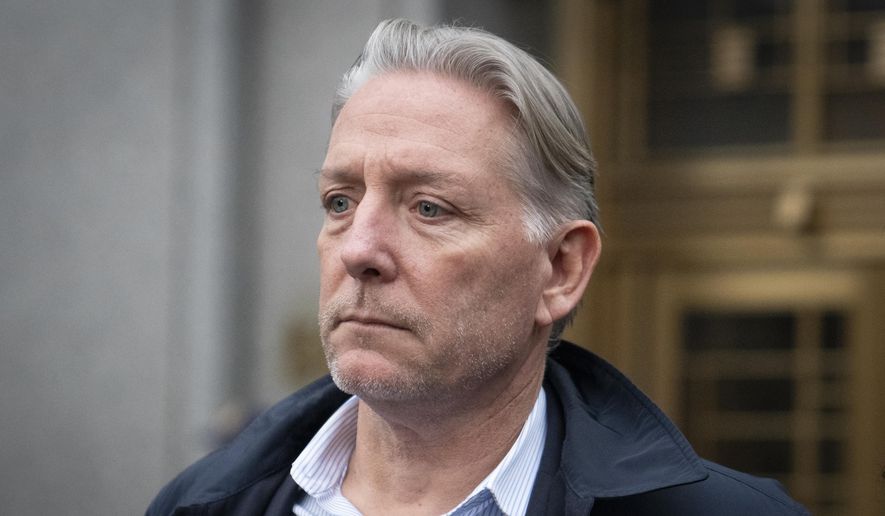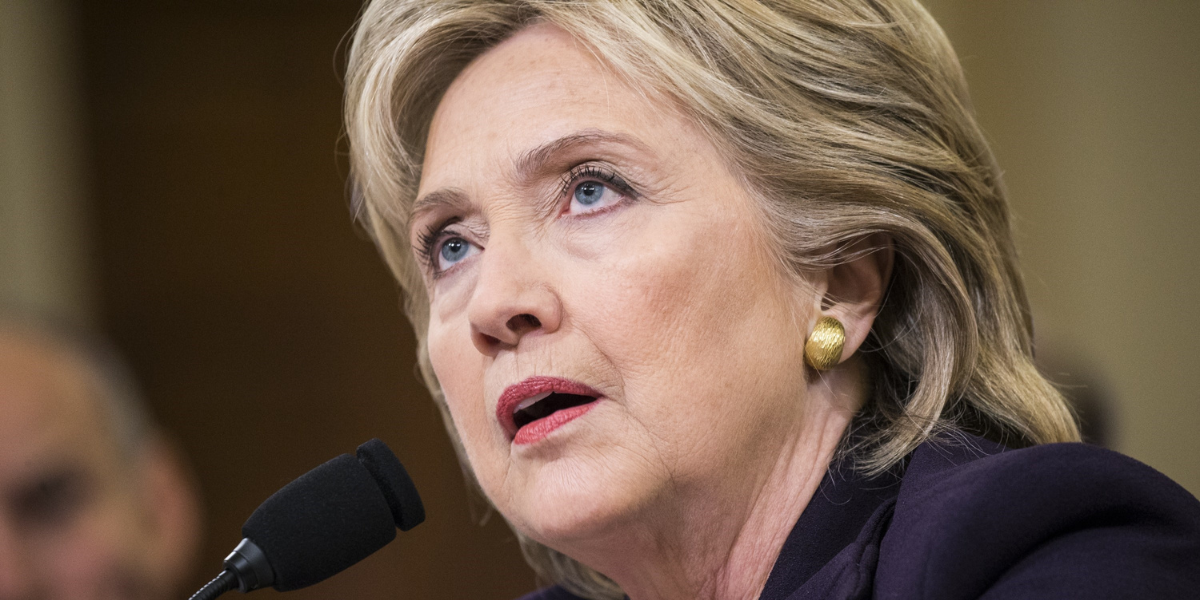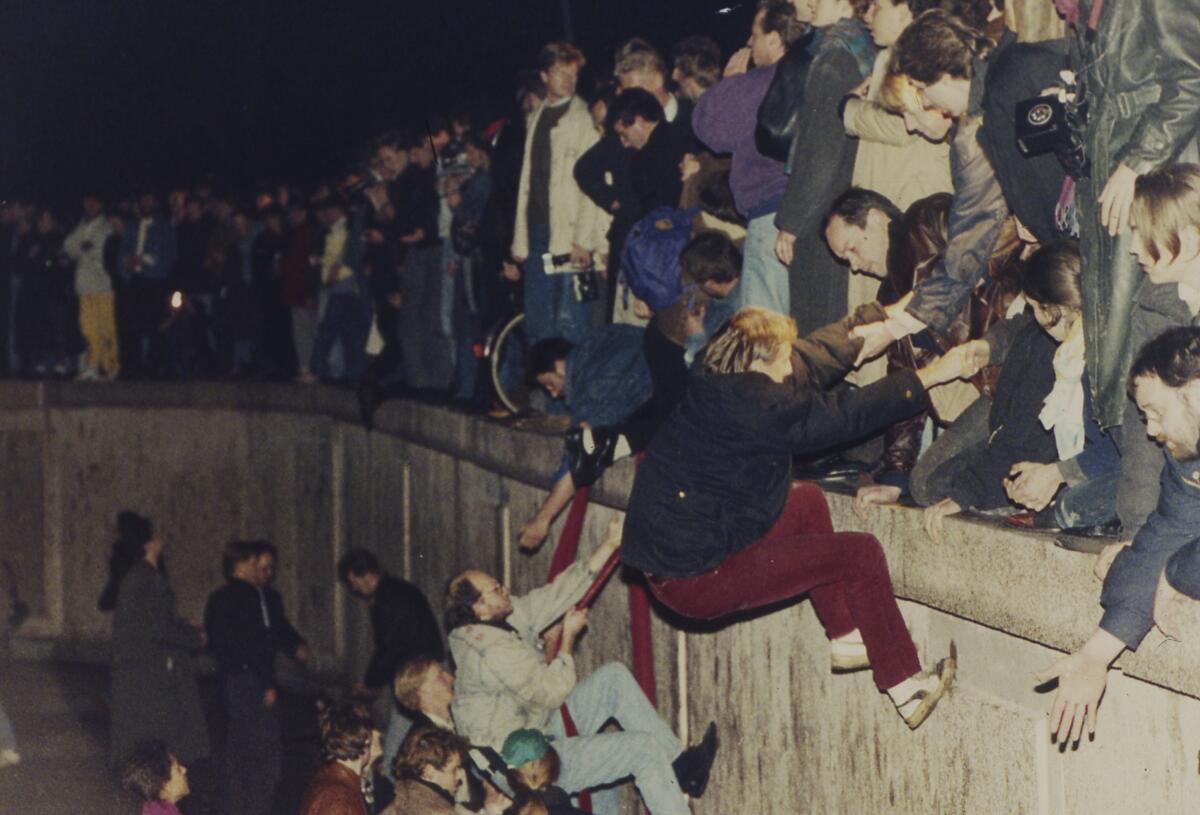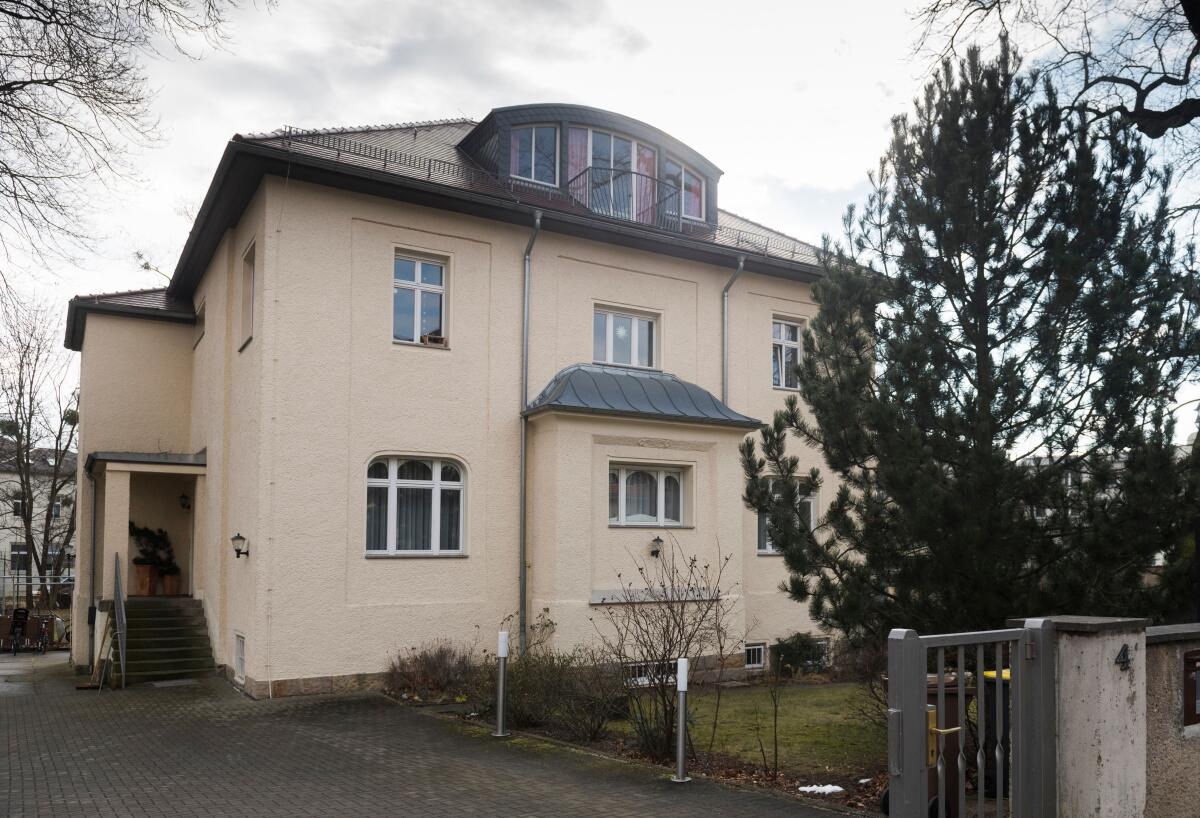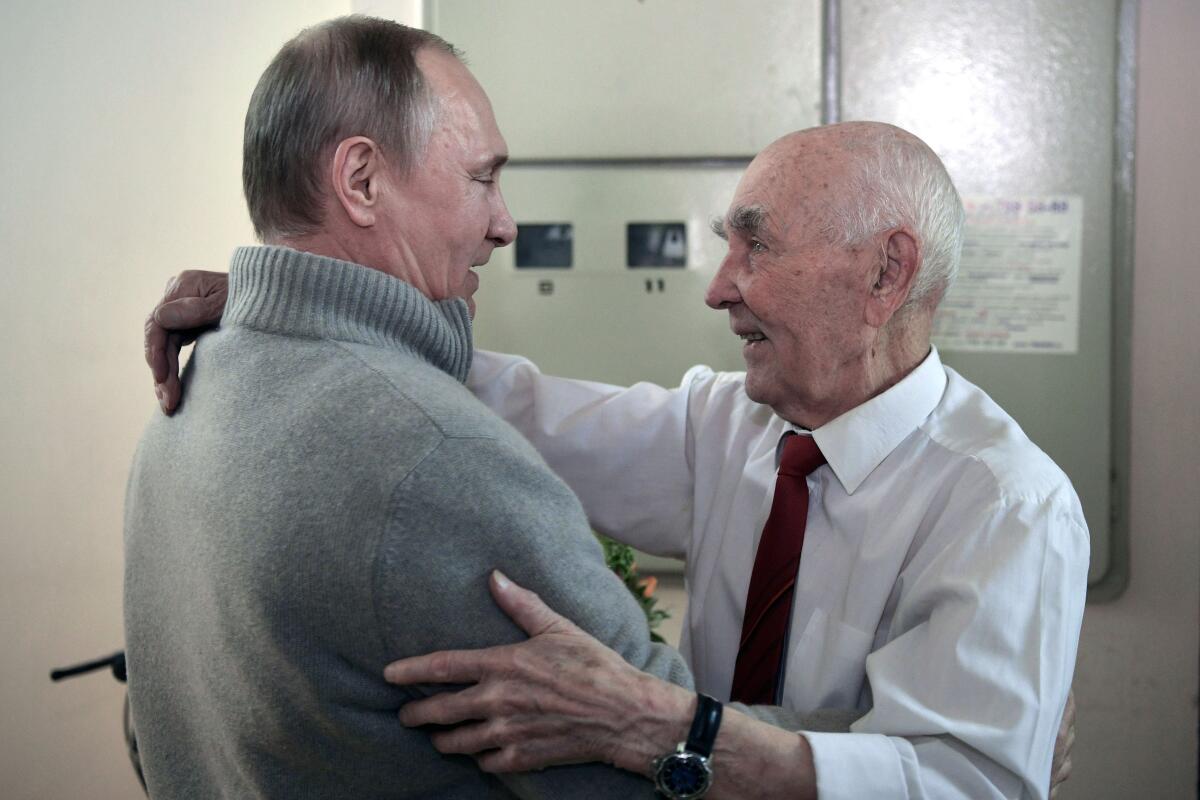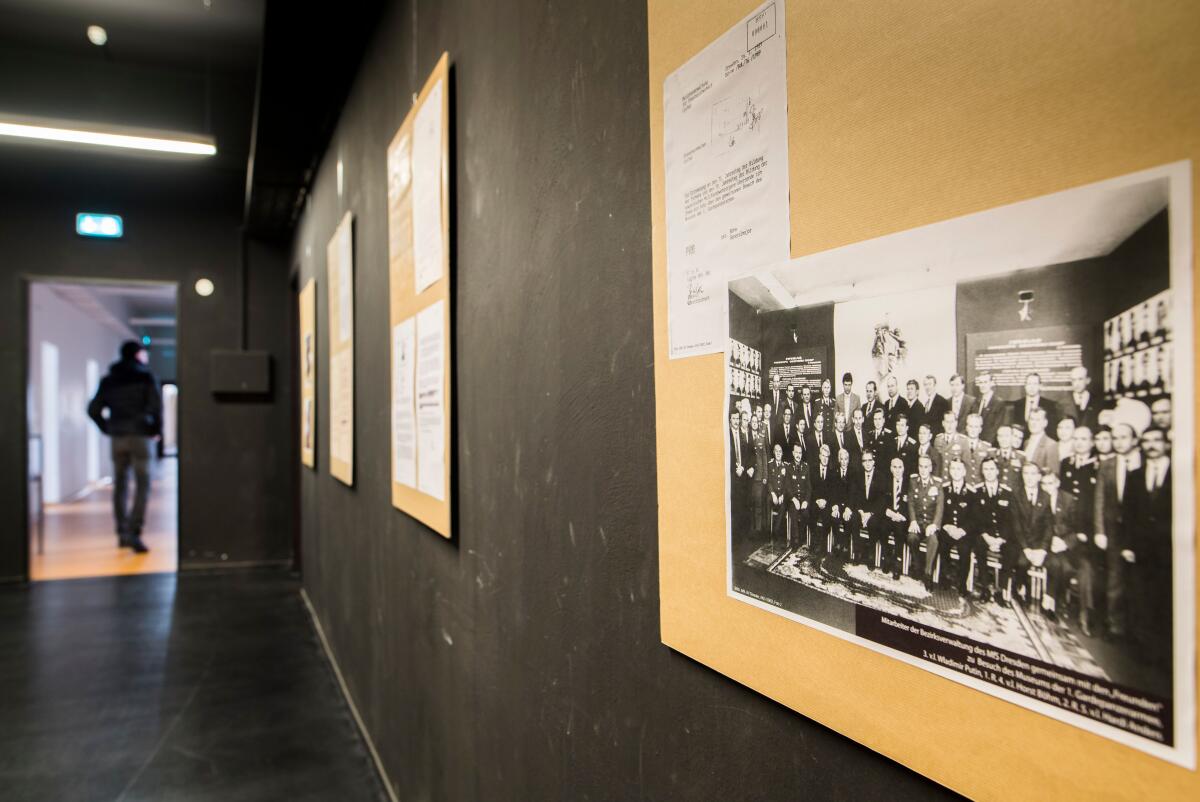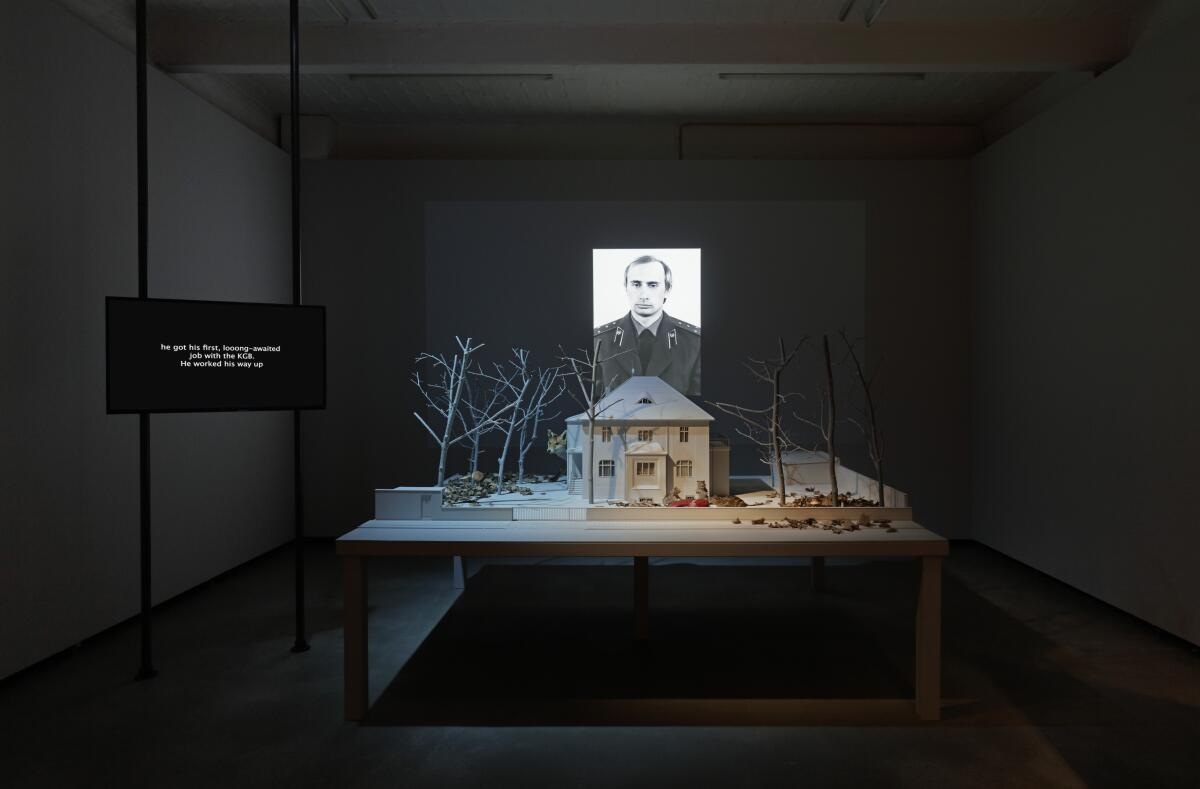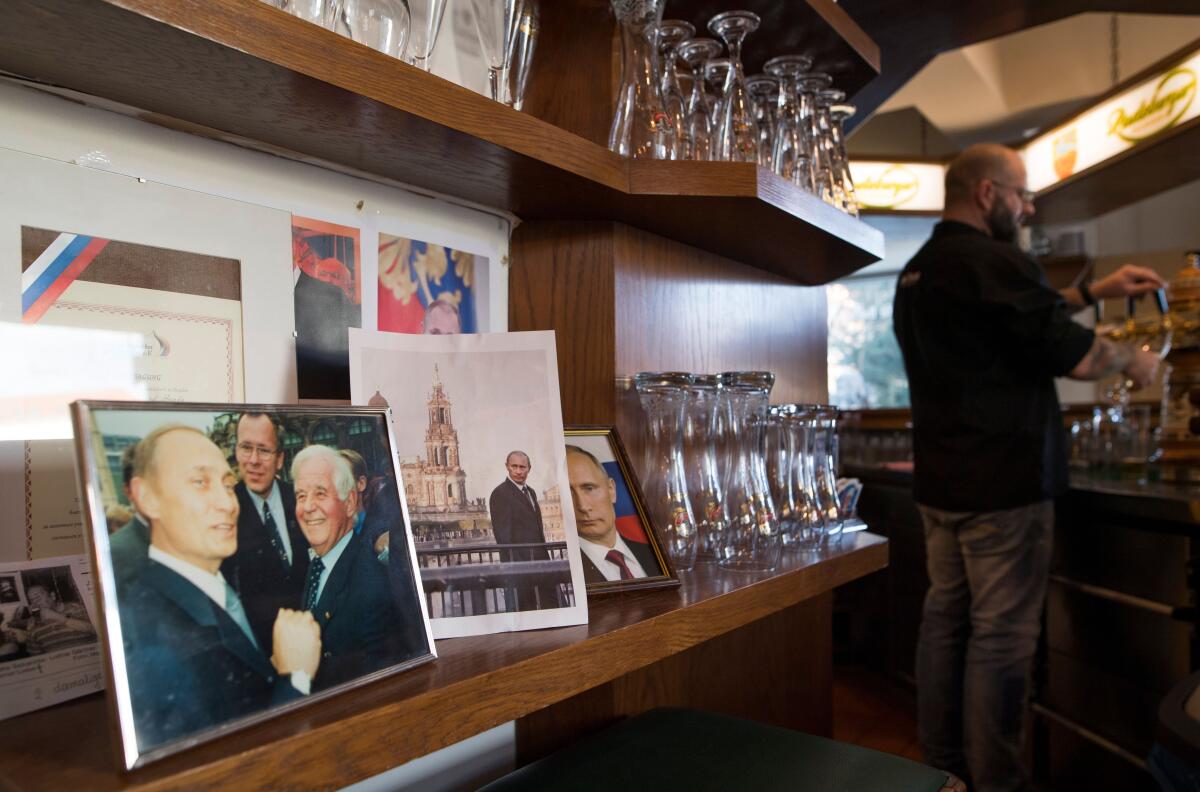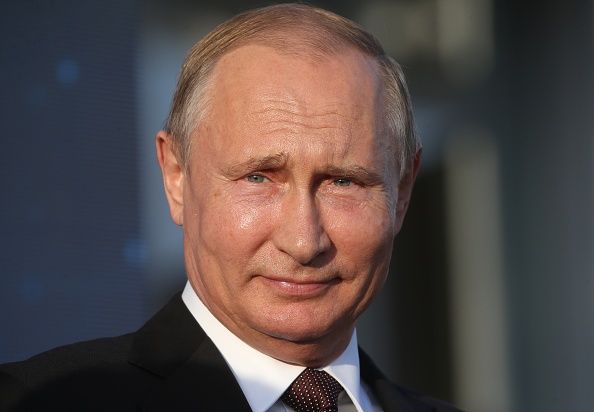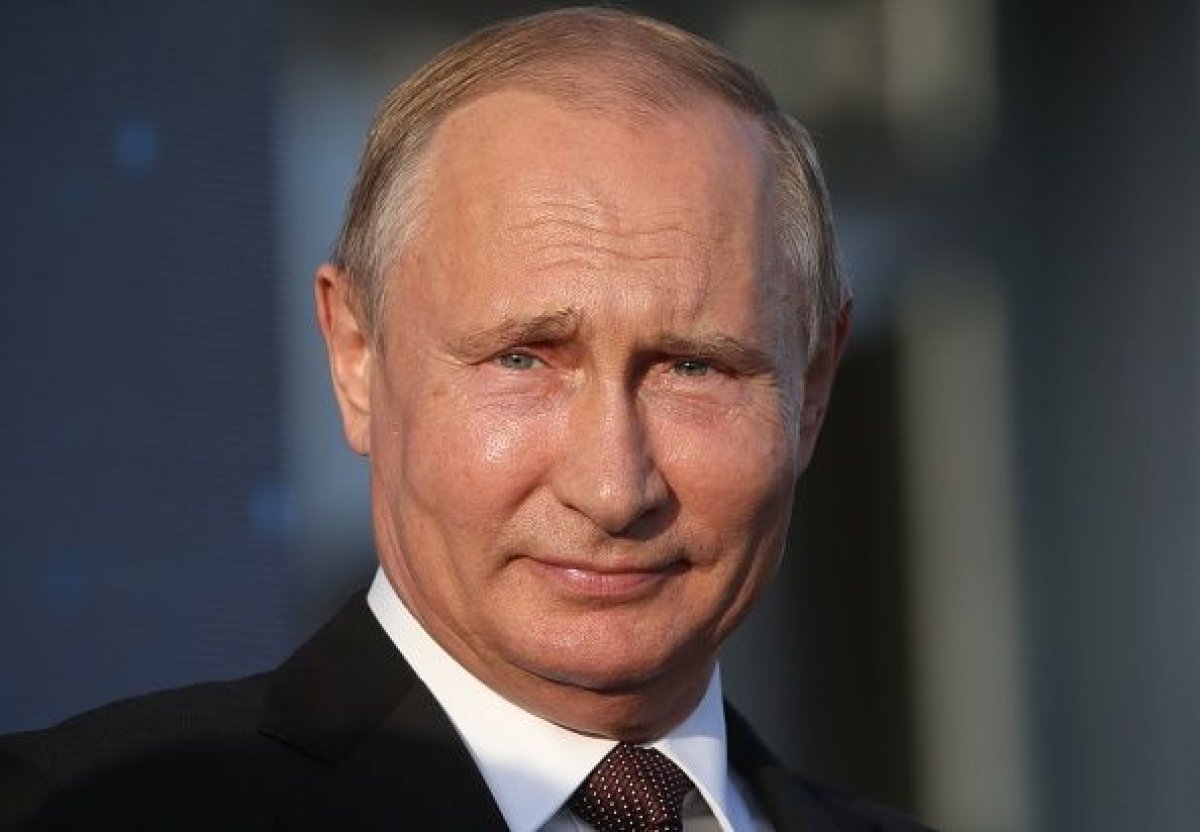Allison Guerriero still remembers the day her ex-boyfriend, Charlie McGonigal, bought a second phone.
The FBI had just ordered its staff to delete WhatsApp from their bureau-issued phones, and McGonigal was panicking. No longer could he, one of the FBI’s top New York dons, send encrypted messages to whomever he was texting with. That was a problem. Guerriero didn’t know exactly what McGonigal was using WhatsApp for — he never used it to communicate with her — but he was on there a lot.
So McGonigal went out and bought a second iPhone to use on the side. He used it almost exclusively for WhatsApp. He took the two phones with him everywhere.
Guerriero would tease McGonigal about it. “What are you, a drug dealer now? With a burner phone?” she said. But she never found out who McGonigal was messaging.
“He said he needed the iPhone to contact his sources,” Guerriero said. “For some reason he couldn’t do it through his FBI phone.”
At the time, Guerriero thought she was McGonigal’s biggest secret. The two of them would often spend the night at his one-room garden apartment in Brooklyn’s tony Park Slope neighborhood. He still had a family back in suburban Maryland, but he’d been spending almost all his time in New York City since October 2016, when he was promoted to head up counterintelligence at the FBI’s field office. McGonigal had promised Guerriero his marriage would soon be over.
The iPhone wasn’t the only curious thing she saw during her time with McGonigal. There were the sealed envelopes he’d be handed when they had dinner with a friend of his, an older man named Sergey Shestakov.
Shestakov had once been a senior Soviet diplomat in New York, stationed at the United Nations. Guerriero wasn’t sure exactly how they had met, but she said the two acted like they had known each other for years. Shestakov was a naturalized US citizen who worked as an interpreter for the federal courts.
Guerriero and McGonigal would sometimes join Shestakov and his wife at pro hockey games. They would party with a group in a private box. Guerriero didn’t know whose box it was, or who was picking up the bill. She never saw McGonigal pay.
On other nights, Shestakov would take McGonigal and Guerriero out to dinner. The two men would make small talk about traffic and the weather. Shestakov would ask McGonigal about his kids. Then, Guerriero said, in the middle of the dinner, Shestakov would casually hand McGonigal a manila envelope.
It happened three or four times while Guerriero and McGonigal dated, from mid-2017 to late 2018. The envelopes always passed from Shestakov to McGonigal, not the other way around. And Shestakov, Guerriero recalls, would always pick up the bill.
What was inside the envelopes? Guerriero never saw. “I just assumed that it was something Sergey had translated from Russian in court,” she said. “Or something from a source. It could have been totally legitimate.”
Or it could have been something else. McGonigal is now facing two federal indictments. He is charged with lying to the FBI on his official paperwork and illicitly taking money to work for Oleg Deripaska, a sanctioned Russian oligarch. The indictments are the culmination of a grand-jury investigation that Insider exclusively reported on last year, and they lay out breathtaking allegations of subterfuge and corruption. Prosecutors accuse McGonigal of cultivating a relationship with Deripaska while still working for the FBI, by doing a favor for the daughter of one of Deripaska’s subordinates. “McGonigal traveled to meet Deripaska and others at Deripaska’s residence in London, and in Vienna,” one indictment says, though it does not specify when. Shestakov is said to have introduced McGonigal to Deripaska’s circle. He is also alleged to have violated US sanctions by partnering with McGonigal on a project to investigate one of Deripaska’s rivals, a contract that paid $41,790 a month. In Albania and elsewhere, McGonigal is accused of engaging in the classic Beltway exchange of cash for favors, leaning on his relationships with US officials and the Albanian prime minister to deliver the results his patrons wanted. Much of this under-the-table lobbying activity, the government says, occurred while he was still at the FBI.

Russian oligarch Oleg Deripaska has been allegedly linked to Vladimir Putin, Paul Manafort, and Russian influence operations in other countries. Prosecutors say he hired Charlie McGonigal, one of the FBI agents who had worked on the bureau’s Trump-Russia investigation, to do research on a rival. Olga Maltseva/AFP/Getty Images
But the question of what McGonigal was accepting in a manila envelope from a former Soviet diplomat raises concerns that go beyond the indictments and is one of the strangest twists yet in the unfolding scandal. The FBI is racing to discover how deep the alleged deceits by an ex-agent who’d held one of its most sensitive posts might run. Was McGonigal working for the Russians while he was still running the bureau’s New York counterintelligence efforts? Or did the FBI succeed in putting a stop to Deripaska’s courtship of McGonigal while it was still in its early stages?
“The access you get in that job is extraordinary,” one senior law-enforcement insider said. “It’s almost bottomless. If you’re running FBI counterintelligence in New York, you can get your hands on almost anything you want — and you don’t always have to make excuses for why you’re asking for it.”
The Trump-aligned right has used the McGonigal allegations as ammunition for its campaign to discredit the dossier-wielding, Mar-a-Lago-raiding FBI. Prominent voices on the left have theorized that McGonigal was a double agent, paid off by the Russians to throw the FBI off the Trump-Russia trail. Still others speculate that McGonigal just got greedy, as top-level officials sometimes do, accepting cash in return for favors and access and being just a little sloppier about it than most.
But to write McGonigal off as a case of greed and not espionage is to misunderstand how foreign influence works. It doesn’t have to be greed or espionage. It can be both.
New York City, the senior law-enforcement insider said, is “a global center for espionage and counterespionage.” “You have visits from foreign business elites,” they added. “You have the United Nations. You have ethnic populations.”
On this contested urban terrain, where foreign intelligence services quietly battle to surveil, recruit, and control, McGonigal was America’s head defensive coach. But a former FBI executive said that under almost no circumstances would an FBI official of McGonigal’s rank be the one to go out on the field and play the game himself. As the special agent in charge of the New York field office’s counterintelligence division, McGonigal had roughly 150 agents to manage. He was in charge of people who were in charge of other people who were in charge of squads of agents who did the block-and-tackle work of tracking and flipping players for the other teams. McGonigal was supposed to be sitting at his desk in lower Manhattan, calling the plays.
Guerriero was unaware of such bureaucratic intricacies. She figured McGonigal was a hands-on agent, just like the ones you see in the movies. He was often out at night “running an op,” as he’d put it. That might explain the envelopes from Shestakov, as well as the plastic bag full of cash she saw one night on the floor by the futon at McGonigal’s apartment in Brooklyn. McGonigal said he’d won it betting on a baseball game. Guerriero was skeptical, but she figured it was “buy money” for a sting operation, or a payoff for an informant. It was all part of McGonigal’s work.
So was the time he spent hanging out with a mysterious man named Agron, whom Guerriero never met.
Agron Neza had immigrated to New Jersey from Albania, where, one indictment says, “he had been an employee of an Albanian intelligence agency several decades earlier.” A federal indictment against McGonigal says Neza gave him $225,000 in cash, including an $80,000 payment that coincided with the date when Guerriero says she saw the bag full of bundled bills in McGonigal’s apartment. Neza, who is identified in an indictment only as Person A, has not been accused of any wrongdoing.
McGonigal and Shestakov are alleged to have been part of an effort by Deripaska to reverse sanctions imposed in 2018 by the Treasury Department, which found that Deripaska had acted as an agent of the Kremlin. Deripaska’s name appears in the special counsel Robert Mueller’s report 63 times. A bipartisan report by the Senate Intelligence Committee found that Deripaska conducted “influence operations” and that he took direction on some of those operations from the Russian government.
“The notion that Mr. Deripaska is some proxy for the Russian state is a blatant lie,” Ruben Bunyatyan, a spokesperson for Deripaska, told Insider by email. Deripaska, he said, “never hired Mr. McGonigal (or Mr. Shestakov) for either business or personal purposes.” Bunyatyan did not respond to the question of whether Deripaska and McGonigal had ever met.
Attorneys representing McGonigal and Shestakov did not respond to requests to comment. “I do not have any comment,” Neza told Insider. The FBI declined to comment.
McGonigal’s early career as special agent in New York gave him exposure to some storied cases. He investigated the crash of TWA Flight 800, the “illegals program” that rounded up Russian sleeper agents, and the September 11 attacks. In Washington, he ran the FBI’s WikiLeaks task force that tracked down and convicted Chelsea Manning, as well as a joint CIA-FBI secret task force dedicated to hunting for Chinese moles inside US intelligence agencies. In New York, he was beginning to establish himself on the foreign-policy luncheon circuit, appearing on panels about Russian election meddling and links between Russia’s intelligence agencies and its oligarchs, like the one he now stands accused of going to work for.
“In a 22-year career with the FBI, I had, uh, quite the opportunity to work with — and against, in some situations — the FSB,” McGonigal said in a remote panel hosted by the Atlantic Council in October 2020. He described the FSB as Russia’s “preeminent security service” and said its ties to oligarchs made it “an agency for hire.”
The number of big investigations McGonigal was involved with, combined with the lack of clarity around how far back his relationship with Deripaska might go, is part of the reason his indictment is a nightmare for the FBI. While the indictments do not allege that McGonigal was disloyal while he was still at the FBI, McGonigal’s lifestyle could have made him an appealing target for recruitment.
In a storied FBI career, McGonigal investigated terrorist threats, organized crime, Russian sleeper agents, Chinese moles and WikiLeaks. When he was charged with taking illicit money from a Russian oligarch, his colleagues were shocked. Michael M. Santiago/Getty Images
For someone with McGonigal’s level of access, having an extramarital affair is not a private matter. It is exactly the kind of vulnerability that McGonigal’s foreign counterparts, the people he was supposed to be working against, might pounce on and exploit.
“People having extramarital relationships are typically involved in some kind of deception,” said Michael German, a former FBI special agent who is now a fellow at the Brennan Center for Justice. “The FBI polygraphs job applicants to uncover exactly that kind of personal foible in order to disqualify them from becoming the lowest-level agent in the office.”
The McGonigal case is already a bad look for those charged with protecting US secrets; there is a chance it could get much worse. McGonigal was not charged with espionage, and although there is currently no evidence that McGonigal committed espionage, an FBI source told Insider that the investigation is ongoing. A second person familiar with the investigation said the FBI’s counterintelligence division appeared confident that the McGonigal case is about corruption and nothing more. The fact that prosecutors agreed to release McGonigal on a $500,000 bond also suggests the government doesn’t think he engaged in espionage, which would make him a flight risk.
But ruling out the worst-case scenario — that McGonigal was sharing US secrets with his foreign contacts — could take months or years. And Guerriero’s recollections — the bag of cash, the late nights, the mysterious friends, the free meals, the second phone — only raise more concerns about the scale of the fallout from McGonigal’s double life.
Charles Franklin McGonigal Jr. was born in a suburb of Cleveland, one of four children from a working-class family. Guerriero remembers him confiding in her about his rough childhood. His parents, he told her, were alcoholics. When McGonigal was still very young, his parents would sometimes fight with such intensity that he had to leave, jump on his bike, and venture out to try to find some friends.
Life got easier in high school. His parents stayed together. His father got a better job. Finally there was enough money. McGonigal stayed in Ohio and got a degree in business administration. He married Pamela Fox in the mid-1990s.
After stints in New York and Cleveland, McGonigal was posted to Washington, DC. The McGonigals put down roots in suburban Maryland. They bought a middle-class house in a middle-class neighborhood. They sent their kids to public schools. At the FBI, McGonigal racked up a string of big cases and promotions. His colleagues saw a side of McGonigal that Guerriero did not see. He was ambitious and driven.
“Charlie would just scream at many of his subordinates,” recalls Pete Lapp, who reported to McGonigal at FBI headquarters in Washington, DC. Lapp, who retired in 2020, said McGonigal played favorites and engaged in “kiss up, kick down” behavior as he scaled the FBI’s ladder. Lapp remembers trying to organize an after-work happy hour; McGonigal ordered him to cancel it. “I was trying to boost morale,” Lapp said. “He saw it as a risk to his career.”
Tracy Walder, a former special agent at the Los Angeles bureau who sometimes interacted with McGonigal, agreed that he could sometimes be difficult. But in her view, his behavior was not so unusual. “It’s the FBI,” she said. “What do you expect? We don’t hold hands and sing kumbaya. People are going to yell sometimes.”
McGonigal was out of his element in New York. He wasn’t prepared for all this money, all these power players. He should have stayed in his cute little suburb, mowing his lawn.
McGonigal worked hard to win the promotions that lifted him to the pinnacle of the bureau hierarchy. In New York, he was welcomed into a select circle of New York law-enforcement dons who dined out at Sparks, Peter Luger, and, in the old days, Elaine’s. One steakhouse on the circuit had a framed photo of McGonigal hanging on the wall.
Those restaurant tables were connected to a darker, more mysterious world inhabited by the spies and oligarchs who gather in the shadows of New York to do business, trade secrets, and purchase loyalties. It was McGonigal’s job to dominate this world, to be the head shark in one of the world’s murkiest and most dangerous tanks.
“He was out of his element here,” Guerriero said of their year together in New York. “He wasn’t prepared for all this money, all these power players. He should have stayed in his cute little suburb, mowing his lawn, playing his softball games.”
That view is harsh, but it is largely shared by Aneta Georgievska-Shine, a lecturer at the University of Maryland who was one of McGonigal’s suburban neighbors. “He was modest,” she told Insider. “They were Catholic, middle-class people who lived in a nice little house. Nothing fancy or ostentatious. Part of me feels sorry for him. He didn’t strike us as an evil person. I wonder what happened to Charlie, what happened to this guy when he moved to New York.”
McGonigal’s Maryland neighbors and New York colleagues found him to be smart and likable. “He was charming, laid-back, and erudite,” one New York acquaintance said. “There was nothing to suggest that he wasn’t the consummate professional.” But in New York, the rapid immersion in a new world of money and power seems to have overwhelmed his middle-class sensibilities. The transformation began on his regular commute from Maryland up to New York, where, according to Guerriero, McGonigal would park his minivan at a New Jersey State Police barracks and get into his “G-car” or government car: a black Ford Explorer. Like many FBI special agents, McGonigal had a placard on the front window that let him park wherever he wanted.
The minivan-Explorer changeover was more than material. With his new job, McGonigal’s stock in the law-enforcement world was high, and the Big Apple quickly got its hooks into him. He augmented his Brooks Brothers wardrobe with a couple of silk Hermès ties. He sometimes sported two tiny replicas of the iconic “We Are Happy to Serve You” Greek coffee cup as his cuff links. He golfed. He went out with friends to Sparks, where he’d order his steak well done. He’d come back from late nights out and tell Guerriero he had been with Agron. Who was Agron? She knew better than to ask.
McGonigal returned home to see his wife and two children once or twice a month. Georgievska-Shine remembers asking McGonigal’s wife at the grocery store how he was doing. She says Pamela used the importance of her husband’s New York City job to explain his long absences.
After McGonigal’s double life was revealed in January, he became the latest screen upon which a divided country could project its partisan fantasies. Many on the right, including Donald Trump, have tried to use McGonigal to discredit the FBI’s investigation into Trump’s Russia ties. On the left, there has been speculation that McGonigal was responsible for a series of leaks that boosted Trump’s chances in 2016. There is evidence to suggest that the FBI director James Comey’s preelection announcements about the Hillary Clinton email investigation were motivated, at least in part, by fears that the FBI’s New York field office would step forward with more leaks if he did nothing. And within the FBI, the New York field office is known for doing what it wants, sometimes even in defiance of orders from headquarters.
Timothy Snyder, the Yale historian, has gone further, floating the unlikely possibility that McGonigal was used by pro-Russia interests to sabotage FBI investigations in ways that could once again call the legitimacy of Trump’s victory into question. The FBI, meanwhile, appears to be pushing back on the idea that the McGonigal case is anything bigger than a case of one corrupt individual. “It’s the FBI that initiated this investigation, it’s the FBI and our agents that painstakingly and methodically put the case together against him, and it’s the FBI that arrested him,” Chris Wray, the FBI director, said at a news conference last week. “We’re the ones who put him in handcuffs,” a senior FBI official told Insider. The FBI’s position seems to be that while it got McGonigal’s training and vetting wrong, it can still be trusted to handle the cleanup.
For the Deripaskas of the world, this is like shopping at Walmart. They laugh at how cheap Americans are to buy.
If the allegations in the indictments are true, it’s possible that Russian interests were still cultivating McGonigal, gradually pushing his limits. To the extent that the FBI can demonstrate that it nipped this process in the bud, it deserves credit. Three sources familiar with the investigation told Insider that the bureau had already been looking into McGonigal by November 2019, which is when Guerriero says she wrote an angry email to William Sweeney, McGonigal’s boss. According to Guerriero, that email, which Insider was unable to obtain or confirm, told Sweeney to look into McGonigal’s Albania work and his personal life. Guerriero acknowledged that she later harassed McGonigal’s family members in apparent violation of a court order, which led to her arrest and a separate restraining order. A 2019 police report filed by McGonigal’s wife said that McGonigal and Guerriero “had a relationship” and that Guerriero repeatedly emailed and called her despite her asking Guerriero to stop.
Given the raging intensity of US politics, it’s not a surprise that some have tried to use McGonigal to prove partisan bias within the FBI. But the notion that McGonigal was knowingly carrying out a covert political agenda is not supported by the facts. To friends and neighbors, he came off as an ordinary executive-level FBI agent — a centrist Republican who drove neighborhood kids to school events in his minivan. A neighbor saw copies of The Economist around his house in Maryland. In New York, Guerriero occasionally saw him watching Fox News. When Trump fired his nemesis Comey, McGonigal said publicly that Comey was “one of the most loved leaders that we’ve had in a number of years,” though later, after Comey began leaking his notes about his meetings with Trump, McGonigal told Guerriero, “I wish he would just shut up.” He told her he did not vote in the 2016 election because he did not like either candidate. One day Guerriero would hear him bragging about playing on one of Trump’s luxury golf courses; on another he would talk with bitter sarcasm about Trump’s promise to “drain the swamp.”
An indifference to politics seems to have been one area in which McGonigal was the model of an FBI professional. If he had no ax to grind, could his motive for the conduct alleged in the indictments have been money? Was McGonigal a greedy white-collar professional who got in too deep?
And if the allegations in the indictments are true, did McGonigal even know he was doing anything out of the ordinary? Or was he another working stiff who saw old colleagues pass through the revolving door to make three times their old government salaries, paid out by the same bad guys they had spent their careers investigating? Perhaps McGonigal’s salary from his post-FBI job as a vice president of Brookfield Properties wasn’t enough to support a girlfriend and a family and have a bit left over for those Hermès ties.
“He said he needed to make more money,” Guerriero told Insider. “He had two kids to put through college.”
A Washington insider with decades of experience in international finance said that the issue raised by the McGonigal case is bigger than the FBI. The revolving-door problem, they said, poses major risks to the entire federal government.
“What McGonigal and all these other chuckleheads don’t understand is that for the Deripaskas of the world, this is like shopping at Walmart,” they said. “They laugh at how cheap Americans are to buy.”
There was one thing McGonigal did that struck Guerriero as weird at the time. It involved vodka.
He had just picked her up in the G-car at her father’s house in New Jersey. They were headed to the Park Slope apartment. On their way to Brooklyn, they planned to stop at the Short Hills Mall. In a few days McGonigal would be flying to Vienna for some meetings. It was cold in Vienna. McGonigal needed to buy a winter coat.
A few days earlier, McGonigal had asked Guerriero to join him for the trip. An all-expenses-paid vacation, he said, would help take her mind off pressing health issues. She had a cancer diagnosis and a double mastectomy scheduled in a few weeks.
McGonigal did not say that Agron would be coming along and that someone else would be paying for their flights and hotels. Guerriero would learn about that later, from the indictments.
That night, driving in the G-car, Guerriero found McGonigal to be quiet, a bundle of nervous energy. On their way to the mall, Guerriero asked him to make a quick stop at a strip mall. She had to pick up a print job at Staples. She went in, picked it up, and returned to the car, where McGonigal was waiting.
“I ran into the liquor store,” she recalled him saying. He took out a tiny bottle of vodka, the size that’s offered on airplanes, and took a sip. Then he screwed the top back on, dropped the bottle in the cupholder, and pulled out into traffic.
Guerriero was surprised. McGonigal liked to have a drink — martinis, sometimes the better part of a bottle of wine with dinner — but rarely to excess and never while driving.
“What are you doing?” she shouted. “You can’t drink and drive in a G-car!”
“It’s fine,” McGonigal replied. “I’ve had a long day. I needed something to calm my nerves.” By the time they got to the mall, he had finished it off.
Guerriero did not know it at the time, but McGonigal had good reason to be nervous. The Vienna trip would be a mix of official and personal business. The indictments indicate the personal side had not been disclosed, as is required, on the advance paperwork McGonigal filed with the FBI. McGonigal, the indictments say, had not informed the FBI that someone else was paying his way or that he would be having off-the-books meetings to drum up private business, even as he continued to hold down his job at the bureau.
Guerriero still doesn’t understand why McGonigal invited her to Vienna. Maybe he wanted someone he trusted to come along for the ride.
But she said no.
“I can’t go to Vienna,” Guerriero told him. “I got too much shit to do. I don’t even have a valid passport. Mine’s expired.”
Now he was alone.
Update: February 8, 2023 — This story has been updated to remove an assertion that Deripaska’s charity did not respond to questions; as the story noted, a spokesperson for Deripaska did provide comment. The story has also been updated to reflect the spokesperson’s additional claim that Deripaska never hired McGonigal or Shestakov.
Mattathias Schwartz is a senior correspondent at Insider and a contributing writer at the New York Times Magazine. He can be reached at mschwartz@insider.com and schwartz79@protonmail.com.
 The 54-year-old was one of the first FBI officials to learn about a Trump adviser saying Russia had “political dirt” on Clinton.AP
The 54-year-old was one of the first FBI officials to learn about a Trump adviser saying Russia had “political dirt” on Clinton.AP
 Mueller was appointed to lead the probe.Mandel Ngan/AFP via Getty Images
Mueller was appointed to lead the probe.Mandel Ngan/AFP via Getty Images
 Clinton ran against Trump during the 2016 presidential election.Chip Somodevilla/Getty Images
Clinton ran against Trump during the 2016 presidential election.Chip Somodevilla/Getty Images
 McGonigal served as a special agent in charge of the FBI’s New York Counterintelligence Division.Stefan Jeremiah for NY Post
McGonigal served as a special agent in charge of the FBI’s New York Counterintelligence Division.Stefan Jeremiah for NY Post
 McGonigal originally joined the FBI back in 1996.Stefan Jeremiah for NY Post
McGonigal originally joined the FBI back in 1996.Stefan Jeremiah for NY Post
 Papadopoulos told a diplomat that Russia had “dirt” on Hillary Clinton.REUTERS/Carlo Allegri/File Photo
Papadopoulos told a diplomat that Russia had “dirt” on Hillary Clinton.REUTERS/Carlo Allegri/File Photo



